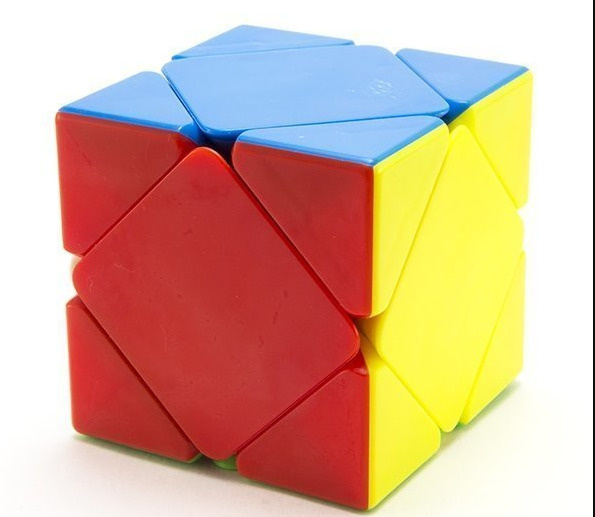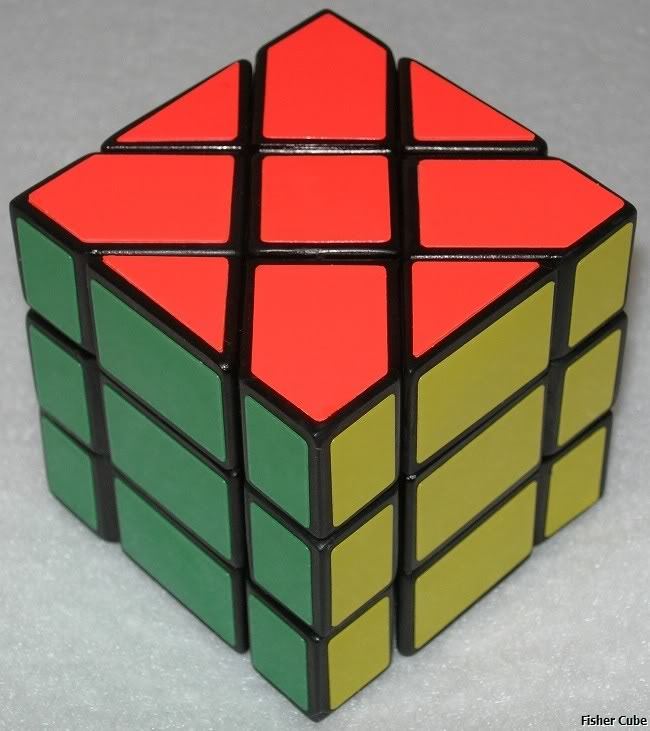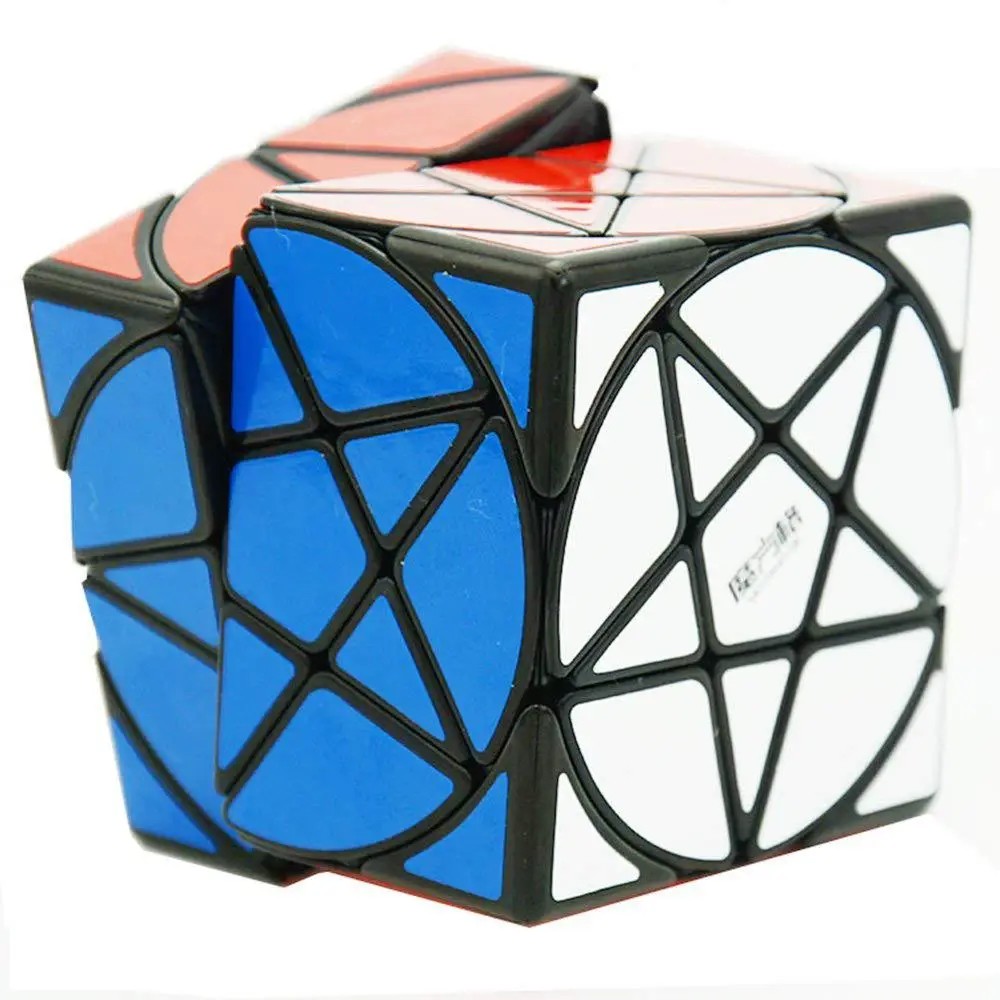Некубический кубик рубика, Как собрать Зеркальный Кубик Рубика?

The plural endings in the dative case are identical for masculine, neuter, and feminine nouns: -ами , -ями. Исчезновение частей фигур 9. Функционально - это полноценный Супер-Флоппи, который сохраняет способность вращаться в любом состоянии. Яркое и красочное изображение обитателей море и океанов завораживает своей красотой и динамичностью..
The use of each type of pronoun is described below, while complete paradigms of the pronouns are found in the Appendix. The Russian personal pronouns correspond to the English "I," "you," "he," "she," "it," etc. However, unlike English, and like French, Russian expresses the difference between the "formal you" and the "informal you.
However, the informal style is uncommon in mathematical writing. Вы is also used to express plurality when more than one person is addressed in conversation. The following table lists the personal pronouns in the nominative case. Singular Plural 1st person я I мы we 2nd person ты you вы you 3rd person он he, it она she, it оно it они they The third-person personal pronouns, in the singular and plural, prefix an н- when they are objects of a prepositional phrase. The Possessive Pronoun-Adjectives Presentation of the possessive pronoun-adjectives is best divided into two categories: first- and second-person pronouns and third-person pronouns.
First- and second-person possessive pronouns. The pronouns of the first- and second-person agree with the noun possessed in gender, number, and case. Also, in Russian, there is no distinction as in English between "my X" and "mine," "your X" and "yours," etc. The pronouns in the nominative. Examples of the possessive pronouns.
Third-person possessive pronouns. These pronouns often cause some confusion; they are identical in form to the genitive of the third-person personal pronouns. Unlike the first- and second-person possessive pronouns, the third-person pronouns do not agree in gender, number, or case with the noun possessed, nor do they ever change form.
They are: его his , её her, hers , их their, theirs. Её профессор читал доклад. Он говорил с её профессором. The second sentence above indicates that unlike the third-person personal pronouns, these possessive pronouns never prefix н- when they are part of the object of a preposition. The pronoun свой declines like мой , твой. This pronoun-adjective helps to avoid certain ambiguities often found in English: e.
Он читал его доклад. Он читал свой доклад. The pronoun свой and the subject to which it refers must be in the same clause or sentence. The Demonstrative Pronouns This category includes the pronouns этот this , тот that , and такой such. The full declension of these pronouns is given in the Appendix. Demonstrative pronouns agree in gender, number, and case with the nouns they modify. The interrogative pronouns include кто who , что what , чей whose , какой which, what kind , and который which, who.
Declensions are given in the Appendix. The relative pronoun requires some explanation. Который is a relative pronoun, and as such it links two clauses together: Проблема, которую мы ставили, были сложная. Note that the relative pronoun not only agrees in gender and number with the noun it replaces, but it also appears in the case required by its function within the relative clause. In this sentence, the pronoun is feminine and singular as it refers to проблема , and is in the accusative case because it is the direct object of the verb ставили.
Note, however, that when used in conjunction with a preposition, the preposition is inserted between the ни- and the appropriate form of the pronoun. Никто не ответил на вопрос профессора.

The category of definite pronouns includes the following: каждый each, every, everybody , всякий any, anybody, all sorts of , сам myself, yourself, himself, etc. The full declensions appear in the Appendix.
Каждый and всякий act attributively as well as standing alone as subjects: У каждого студента решение. У каждого решение. Сам is used to intensify or emphasize. In the following sentence, сам is used to emphasize the subject pronoun я : Я сам не знаю, как решить эту задачу.
One of the distinguishing characteristics of the Russian language is the notion of verbal aspect. There are two aspects in Russian: the imperfective aspect and the perfective aspect. In its simplest definition, the imperfective aspect indicates that an action is in progress, that it has not necessarily been, nor will be, completed, or is continuous or recurring.
Conversely, the perfective aspect indicates that an action has been, or will be, completed, or that there has been, or will be, a definite result. In languages that do not have special grammatical forms to express verbal aspect, the distinctions described above are rendered by the many verbal tenses, such as the perfect and pluperfect. Consequently, since Russian does exhibit verbal aspect, its inventory of tenses is minimal. In fact, Russian has only three tenses: past, present, and future.
Furthermore, perfective verbs have no present tense, since they describe a completed action, and thus are used only in the past and future tenses. For instance, the verb "to read" in Russian has the imperfective infinitive читать and the perfective infinitive прочитать. The imperfective verb читать appears in all three tenses, while the perfective form прочитать appears only in the past and future tenses:. Notice that the imperfective future tense is compound, while the perfective future is simple.
The first component of the compound future construction, буду of буду читать , is the future tense of the verb "to be" and is used to form all imperfective future tenses. The following sentence illustrates the imperfective future tense: Мы будем называть функцию f z непрерывной, если Although a great number of imperfective and perfective verb pairs may be derived from each other by affixation adding or removing a prefix, suffix, or infix , not all pairs are easily recognized as pairs by their form.
In the dictionary, the imperfective verb is listed with its definition, with the perfective form given in parentheses. The perfective form may be listed with or without a definition, but is usually referenced to its imperfective. When no perfective form is indicated, this is not necessarily an oversight: some verbs do not have a perfective aspect, some have only the perfective, and many, especially verbs adopted from other languages, have the same form in both aspects. These special situations are not usually mentioned in the dictionary, since nonexistent forms do not have to be translated.
The definition may be repeated for the perfective form when the imperfective and perfective are widely separated in the dictionary. The perfective forms of reflexive or passive verbs are not usually mentioned if the corresponding active forms are given. The verb "to be" быть is very important in Russian, as in all languages. Following is the conjugation of быть : present tense 2 он, она, оно есть he, she, it is они суть they are future tense я буду I will be мы будем we will be ты будешь you will be вы будете you will be он, она, оно будет he, she, it will be они будут they will be past tense был, была, было, были я был, была I was мы были we were ты был, была you were вы были you were он был она была оно было he, it was she, it was it was они были they were It has already been illustrated that the present tense of быть is usually omitted in Russian sentences.
Review the following sentence: Неравенство 11 слабее чем неравенство Consider also the following sentence: Предложение P эквивалентно Q. The present tense of быть , "to be," is omitted in both sentences. Матрицы суть спиновые матрицы Паули. Unlike the present tense, the future and past tenses of быть are never omitted. The verb являться. The verb являться to appear, to present oneself is often used to replace the present tense of "to be" in sentences which would be confusing if lacking a verb.
In such instances, the verb is translated as the appropriate form of "to be. The predicate of these verb forms is always in the instrumental case. The following sentences illustrate this construction: Такая функция существует и является единственной.
Вероятность P будет являться абстрактной копией эмпирической частоты. Verb Conjugations Russian verbs are classified as members of either the first or second conjugation, according to their nonpast personal endings. It is possible, however, for a verb to exhibit a mixed conjugation; that is, some of its endings are those of the first conjugation, while the rest are from the second.
The following chart shows the endings of the two conjugations:. The verb читать is of the first conjugation: я читаю , ты читаешь , он читает , мы читаем , вы читаете , они читают. The verb говорить is of the second conjugation: я говорю , ты говоришь , он говорит , мы говорим , вы говорите , они говорят. The forms in parentheses, first person singular and third person plural, are common alternate endings and occur when dictated by certain spelling conventions. A verb typically consists of several components when fully conjugated, although there are variations; perfective verbs, for instance, have no present tense, and thus no present participles.
Among the inventory of components are the infinitive, the present, future, and past tenses the indicative mood , the imperative mood, the conditional mood, the present participles, the past participles, and the gerund, or adverbial participle. Sample verb conjugations. The following are sample conjugations.

The Appendix includes a more comprehensive set of paradigms, as well as a list of common irregular verbs and their conjugations. The paradigms in the Appendix follow the given format, but are somewhat condensed and abbreviated where possible for instance, only the masculine form of a participle is given. The infinitive is translated as "to X"; the imperfective infinitive делать is translated as "to do," as is the perfective infinitive сделать.
The infinitive of a verb consists of the infinitive stem plus the infinitival ending.

In Russian, there are three infinitive types: those ending in -ть, those ending in -ти, , and those ending in -чь.
The ending -ть is the most common and includes such verbs as делать to do , сделать to do , сесть to sit , говорить to speak , and заниматься to study. The third ending, -чь, occurs in the following verbs: жечь to burn , течь to flow , and мочь to be able to. It is the infinitive of the verb which is listed in the dictionary.
Therefore, it is important for the reader of Russian to convert to the infinitive before looking in the dictionary. While it would be impossible here to give a formal and complete description of the relation between the infinitive types and all the conjugations, without a lengthy linguistic explanation, the following generalizations should be helpful.
The reader should remove the conjugated ending i. If working with a past tense, whose stem is equivalent to the infinitive stem, the infinitive is easily determined by dropping the past tense suffix and adding the infinitive ending. However, when working from a verb with two different stems, one in the infinitive and one in the nonpast, sometimes a regular consonant mutation is present: писать , пишу , пишешь , etc.
The infinitive-past tense stem is писа- , and the present tense stem is пиш-. This is a regular alternation. The following is a list of common consonant alternations:.
The past tense of these verbs lacks the suffix -л- in the masculine form: тёк , текла , текло , текли. A warning is necessary here, however; these generalizations are not comprehensive linguistic rules, nor are they without exception.
The reader should therefore keep in mind the list of consonant alternations; these often occur and subsequently mask the relation between the infinitive and its conjugated forms. When an alternation occurs in a first-conjugation verb, except those in -чь , the alternation occurs in all the persons, while in second-conjugation verbs, the alternation occurs only in the first-person singular; the remaining forms retain the consonant of the infinitive. Also, in the Appendix are several sample paradigms which will assist the reader in determining infinitives.
The Appendix also lists several of the most common irregular verbs and their conjugations. Reflexive verbs end in the particle -ся -сь , and are conjugated as are other verbs. The particle -ся is added to the end of the verb; -ся is added if the verb form ends in a consonant, and the alternate form -сь is added if the verb form ends in a vowel. Participles agree in gender, number, and case with the nouns they modify.
Passive participles are formed only from transitive verbs those which take direct objects ; reflexive verbs, which are intransitive, thus do not form passive participles. Formation of the participle. Present active participles Add the suffix plus adjectival endings to the present-tense stem. Short-form participles Because participles are adjectival in form, they may occur as short-form participles. However, only passive participles have both the long and short forms; active participles occur only in the long form.
Short-form participles are used as the predicate of a passive construction. They consist of stem plus suffix plus short-form adjective endings. Like short-form adjectives, they are only used as predicate adjectives, and so they do not decline. Present adverbial participles. The suffix -я -а after ж , ч , ш , щ is added to the present-tense stem of the imperfective verb. Gerunds from verbs ending in the reflexive particle -ся. Gerunds may be formed from verbs ending in -ся , although the ending always appears as -сь.
Auxiliaries: должен, нужно, нельзя, можно, мочь. These verbs, adverbs, and adjectives are translated as auxiliaries. Должен, "must, ought to. Должны быть удовлетворены граничные условия. Нужно, надо, "must, it is necessary," нельзя, "must not, it is impossible, cannot. Чтобы представить уравнение в номографической форме, нужно сначала найти зквивалентный детерминант. Теорему Абеля нельзя распространить на пути, касательные единичной окружности. Можно, "may, can, it is possible. Используя интеграл Фурье, можно сконструировать сферические или цилиндрические волны из плоских волн.
Мочь, "to be able to. The verbs of motion, or more specifically, of going and carrying , exhibit a further distinction within the imperfective category. While the majority of verbs have only one imperfective form to describe two separate types of action i. The determinate imperfective describes an action going or carrying in progress and in a specific direction.
The indeterminate imperfective describes habitual actions going or carrying and actions in which no specific direction is involved.

Профессор идёт шёл, когда я его видела в лабораторию. The conjugations of these two verbs are as follows:. Он пошёл в лабораторию. He has gone to the lab. The conjugation of the verb пойти is as follows:. Furthermore, these verbs of going and carrying may be prefixed by "directional prefixes. Note that in the past tense forms, gender is distinguished in the singular, but not in the plural. The endings are the zero-ending for masculine subjects, -а for feminine subjects, -о for neuter subjects, and -и for plural subjects.
These endings, preceded by the past tense suffix -л- , are added to the verbal stem, which is usually formed by removing the infinitival suffix -ть. This is true for the past tense forms of most verbs.
These forms are archaic but do appear. These endings are "nonpast" endings; they are used for the imperfective present tense as well as the perfective future. Note the loss of the stem-final consonant in deriving the infinitive. Note, however, that in form, the endings of the perfective future are the same as those of the imperfective present tense. Therefore, care must be taken to determine whether the verb is perfective or imperfective.
Note the loss of stem-final vowel in forming this participle. It is recommended that each word in the sentence be looked up in the dictionary; the superscripts refer to the comments immediately following the translation. Under the entry прежде appears the phrase прежде чем as a conjunction, meaning before , which is usually followed by an infinitive. The infinitive here can be rendered in many ways, the simplest and most usual way being "Before proving that Imperfective infinitive is удовлетворять ; the conjugation is like выполнять in Appendix D.
Perfective form доказать from the imperfective infinitive доказывать see Appendix D. Although докажем is first-person plural, future indicative, the translation "we prove" is as correct as "we shall prove," since the two renderings are fully equivalent in the context of the sentence. The expression общий наибольший делитель will be found listed in the dictionary after each of the three words in the phrase, since a literal rendering with the same word-order could conceivably lead to confusion, particularly since общий has other meanings.
The word то is the conjunction then , not the demonstrative pronoun. Present participle, having the form of an adjective; this form is listed as an adjective in the dictionary. Short form, neuter, of открытый open indicates a predicative use with the verb "to be" omitted; note the short form, neuter, of насыщенный saturated.

Note that его is not declined, even though it is linked to образ. The verb являться to be is followed by the instrumental case. In Russian, the noun "equivalence" cannot be used as an adjective without adding an adjectival ending. It is quite possible to form the adjective эквивалентностный equivalence, pert. This is the present passive participle индуцируемый of индуцировать to induce and has a second meaning "inducible"; both meanings are given in the dictionary.
This phrase in parentheses may or may not be inserted, at the discretion of the translator. If the domain, in which the initial temperature t x , y , z , is prescribed, is the whole space, then the solution can be written in closed form. Instrumental case with являться to be. Short form, feminine, of заданный ; a predicative use is indicated here, and the passive participle gives the passive sense to the translation.
The conjunction "then" rather than the neuter of тот. The same use of the passive participle as in note 2; the link-verb быть must be used here following может. Note also that может быть as a phrase has the meaning "perhaps," but that the context rules out this possibility.
See also Some Special Verbs below. In order that this process have meaning, it is necessary that it give a unique result.
The conditional or subjunctive mood of иметь to have ; the particle бы has been attached to the что that in the clause. Note the short form and the implied predicative. The conditional of давать to give is давал бы , and the particle бы usually combines with что. By repeating this argument, we obtain the same result for the function f x. Adverbial participle of повторить to repeat ; the translation of повторяя could have been rendered by "Repeating" or "If we repeat," to suit the taste of the translator.
Perfective form, and the future "we shall obtain" has the same sense, in the context, as "we obtain. Note the pair тот же under тот or under же in the dictionary. Госсетом, писавшим 4 под псевдонимом «Стьюдент» Student. Gosset, writing under the pseudonym of "Student. Present passive participle задаваемый of задавать to define, etc. Short form of the participle использованный ; with было the verb is passive. The past active participle писавший of писать to write ; it may also be rendered as "who wrote" or "who was writing," the latter expressing literally the imperfective aspect of the verb.
When a Western surname is introduced into Russian for the first time, the original spelling in the Roman alphabet used sometimes to follow the transliteration into Russian; this is rarely done today. Instrumental case of the predicate following the simple past or simple future of быть. Adverbial participle of быть. Please refer to the section concerning modals in The Verb for further discussion.
The English words "must," "ought to," and "should" may also be rendered by следует followed by the infinitive; the past is следовало бы should have, ought to have ; for example Следует быть острожным при использовании этой формулы. Вам следовало бы исключить сначала A , затем B. Следует may also have its usual meaning "follows," for example Из 2 следует, что Notes 1.
Adverbial participle; note that фиксировать is both perfective and imperfective. Same comment as in note 1. Если бы мы имели в своём распоряжении большее число точных наблюдений, Ответ на этот вопрос может дать ключ ко всей проблеме. The Adverb Unlike the noun and the adjective in Russian, the form of the adverb is invariable.
Он говорит интересно. Она говорит интереснее, чем он. Они решили задачу раньше, чем мы. Он правильно решил задачу. Профессор читал очень интересный доклад. Студент очень быстро ответил на вопрос профессора. Здесь холодно. В кабинете тепло и светло. Эту задачу трудно решить. Нужно правильно решить задачу.
Здесь нельзя курить. Ему холодно. Эту задачу студенту трудно решить. Note that the verb in such constructions is in the infinitive. In the past tense, these constructions use the neuter past form of to be было , while in the future tense the singular form of to be is used будет. This occurs because there is no grammatical subject in the sentences; thus the verb has nothing with which to agree.
Трудно было решить задачу. Профессору будет легко выполнить это задание. The meanings of many of the common English prepositions are already embodied in the case endings of the Russian nouns and pronouns; the most obvious instance is, of course, the implicit rendering of the preposition "of" by the genitive case, the preposition "by" with the instrumental, for example, применённый автором applied by the author , etc.
The table below gives some of the more commonly used Russian prepositions, including adverbial participles, and the corresponding cases together with some typical phrases.
Для молекул, у которых инверсионным удвоением пренебрегать нельзя, Штрих у знаков суммы означает, что Элементы множества A могут быть обозначены через a 1 , a 2 , In Russian, as in English, numerals may be divided into two categories, cardinal one, two, three, etc. The following table lists the cardinal and ordinal numbers in Russian; the cardinal numbers appear first, and the ordinals follow the semicolon:.
Both types of numeral are declined. Ordinal numbers are adjectival in form, and thus simply follow the adjectival declension. In compound ordinals, however, only the final component is in the ordinal adjectival form:. The only ordinal number which requires additional explanation is the adjective "third," or третий m. Notice that the feminine and neuter adjectival endings are not the expected compound endings -ая -яя , -ое -ее.
Заказы через сайт принимаются круглосуточно. После выбора товара, нажмите на кнопку Купить , которая находится справа от основного фото товара. Выбранные товары помещаются в корзину , содержимое которой Вы можете просмотреть, нажав на пункт «Корзина покупок» , в главном меню сайта. Для заказа находящихся в корзине товаров, нажмите на пункт меню «Оформить заказ» и пройдите все шаги оформления заказа.
После поступления заказа, менеджер перезвонит Вам по указанному Вами номеру телефона Заказ по телефону. Позвоните нам, по любому из номеров, представленных в разделе «Контакты» Получите профессиональную информацию о товаре и Согласуйте с оператором наличие Кружка Панда Panda черная в данный момент на складе. Сделайте заказ, сообщив свои данные, адрес доставки и желаемое время доставки. Популярные разделы. Войти или зарегистрироваться. Кабинет Войти или зарегистрироваться.
Связаться с нами Возврат товара Карта сайта. Доставка и оплата.
Главная Кондиционеры Выбор кондиционера может быть сложной задачей. Какой размер вам нужен? Сколько будет стоить.. Деловые телефонные системы больше не служат инструментом для простого совершения и приема звонков.. Итак, вы решили сделать решающий шаг и приобрести или собрать компьютер.
При выборе оборудования.. Кухонная бытовая техника - это инвестиции, поэтому делать покупки нужно с осторожностью. На каждый праздник любимые люди стремятся наводнить детей игрушками, книгами и сувенирами. Как вы.. Кондиционер Mitsubishi Electri Ноутбук HP Laptop gwur Профессиональный Графический П Электронная книга PocketBook Беспроводные наушники Aiwa AT Стиральная машина Atlant 60y Квадрокоптер Дрон H